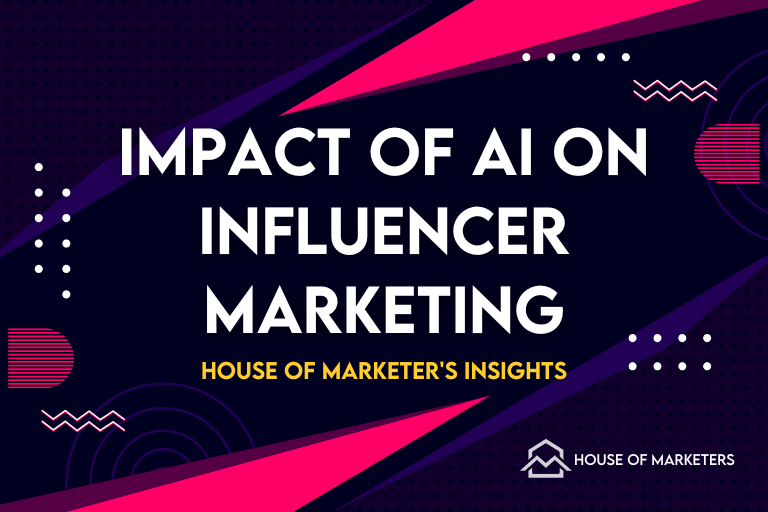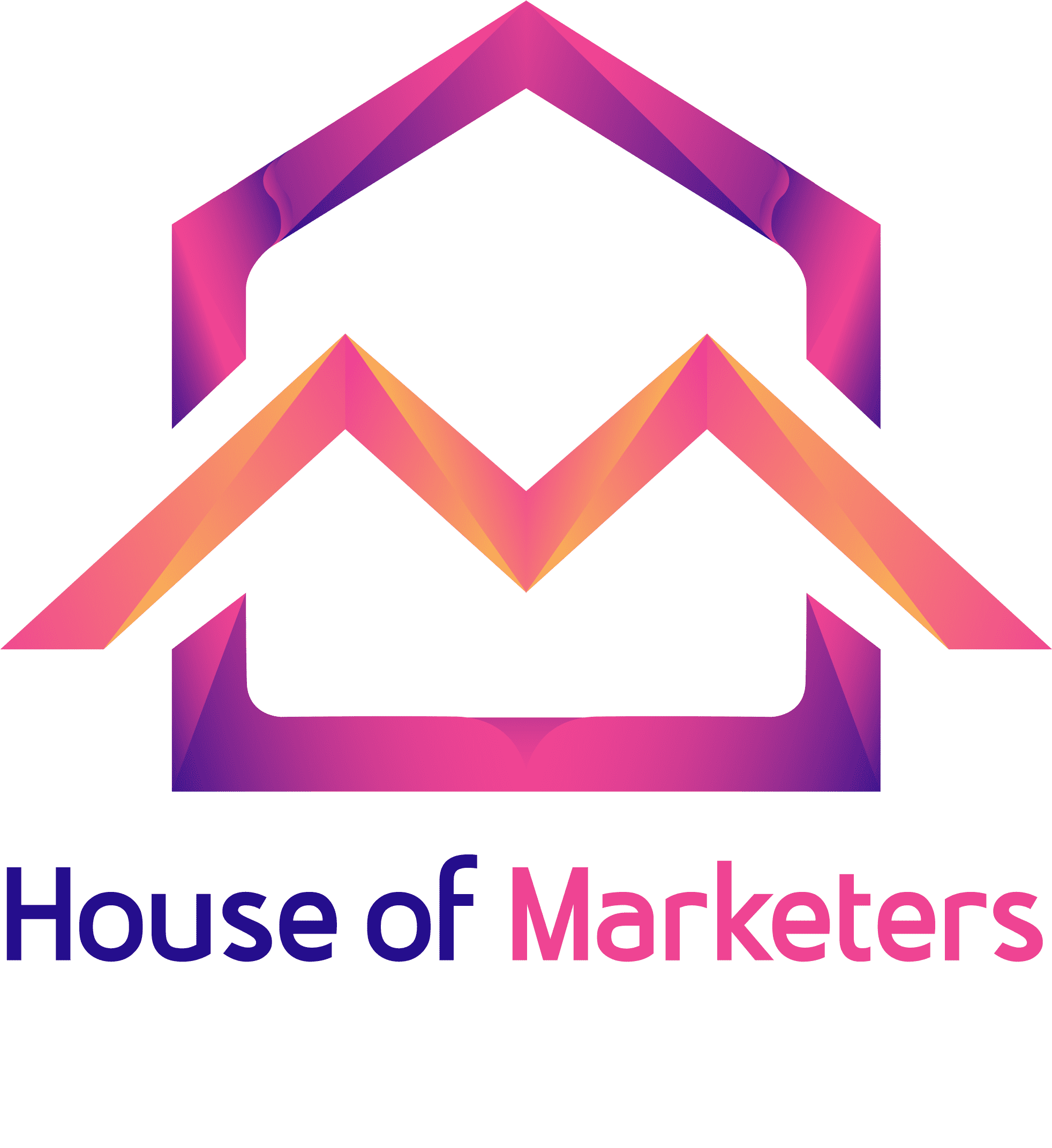“Artificial Intelligence only adds to marketing, and is incredibly positive for the influencer marketing industry.”
Inigo – Founder of House of Marketers – Global TikTok Agency
AI has taken the world by storm in the past year. We got asked how we are using AI in our agency plus the impact of AI on influencer marketing in general. The answer is “Artificial Intelligence only adds to marketing, and is incredibly positive for the influencer marketing industry. At House of Marketers, we are utilising artificial intelligence to improve the speed and efficiency of our campaign delivery process. We’ve shifted to a 5 day turnaround from a 21 day turnaround, which allows more scalable and agile campaigns for our fast-growing clients.”
This profound embrace of AI by HoM showcases just how significantly technology is transforming the industry. Today, AI doesn’t just support marketing strategies—it reinvents them, making every campaign faster, smarter, and more effective.

Impact of AI on Influencer Marketing
It’s fascinating to see just how deeply AI is woven into the fabric of modern marketing strategies. The impact of Artificial Intelligence (AI) on influencer marketing is profound and multifaceted, driving significant changes in how we are strategizing, executing, and measuring the impact of marketing campaigns.
Here are some key areas where AI is making a substantial impact in our work as a Global TikTok and Social media agency.
Enhanced Targeting and Personalisation
We recognize that the impact of AI isn’t just limited to content creation; in fact, beyond the obvious, the true genius of AI in marketing lies in its capacity for nuanced personalization and targeting.
The integration of AI with social media algorithms is pivotal. We leverage this synergy to optimise content visibility and engagement across platforms by using AI’s analytical power to predict what content will perform best. This allows us to align our campaigns with the unique preferences of our audience, thereby boosting success rates.
The growing investment in AI technologies underscores its vital role in this domain, with significant funding directed toward companies innovating at the intersection of AI and marketing (Influencer Marketing Hub).
AI is Making Marketing Efforts More Efficient and Scalable
Next, we are using AI’s to enhance operational scalability and efficiency. By automating tasks, use of AI allows us to manage multiple campaigns simultaneously, adapting swiftly to the fast-paced marketing environment.
This operational agility is crucial as it supports rapid adaptation to market changes and client needs. Use of AI has helped reduce our campaign delivery from 21 days to just 5. All in all, AI has enabled us to become more agile.
Advanced Analytics for Deeper Insights
With AI, House of Marketers is able to access more advanced analytics that provide deeper insights into audience behaviour, preferences, and engagement patterns. This data-driven approach allows for more targeted and personalised marketing strategies, ensuring that campaigns resonate well with their intended audiences and deliver optimal results.
For instance, 41.3% of marketers are seeking better predictive analytics from AI tools to enhance campaign performance forecasting, highlighting the demand for sophisticated AI applications in strategy formulation.
Predicting Influencer Performance using AI
In a similar vein, you can now use AI algorithms to analyse historical data and social media metrics to forecast which influencers are likely to generate the best outcomes for specific campaigns. This strategic use of AI not only amplifies the effectiveness of marketing efforts but also ensures that these efforts sync perfectly with a brand’s values—key to achieving successful outcomes. Notably, tools like ChatGPT exemplify this advancement, utilising deep learning to gain an understanding of enhanced interaction patterns and predictive capabilities in influencer marketing. A report by Stellar further illustrates how their AI-powered tools delve into these analytics, offering actionable insights that significantly benefit strategic planning and execution in influencer marketing.
This predictive capability ensures that HoM partners with influencers who align perfectly with their clients’ brand values and campaign objectives.
The Future: AI Creators and Virtual Influencers
Looking ahead, the influencer marketing landscape is poised for a transformative shift with the rise of AI-generated virtual influencers. These digital personas, crafted through sophisticated AI technologies, are not just static representations; they can interact with real audiences, display distinct personalities, and actively promote products or brands. Their ability to be programmed for consistency in brand messaging and to operate without the complexities of human unpredictability makes them an appealing option for brands seeking new engagement strategies.
TikTok’s latest foray into digital avatars allows brands to creatively engage and resonate with the platform’s youthful audience, significantly blurring the lines between digital interaction and tangible impact. About 35% of American consumers have already interacted with virtual influencers, indicating their growing influence and potential in reshaping marketing strategies.
As AI technology advances, the capabilities of virtual influencers are expanding. They are becoming equipped with more nuanced emotional intelligence and the ability to generate responses in real-time, making interactions with users seem more authentic. This progression is likely to position virtual influencers as central figures in future marketing strategies, offering innovative ways for brands to captivate and engage with consumers across various platforms.
Moreover, the integration of virtual influencers can address some of the scalability issues faced by traditional influencer marketing. Unlike human influencers, who can only manage a certain amount of collaborations and content creation due to time constraints, AI influencers can operate continuously, engage with an unlimited number of fans simultaneously, and maintain brand consistency without fatigue.
As virtual influencers become more popular, it’s essential for brands to maintain transparency about the AI nature of these personas. This honesty is crucial in building and maintaining consumer trust, especially as we navigate the complexities of AI ethics in marketing.
In conclusion, as we look to a future where AI becomes increasingly integrated into our daily lives, virtual influencers represent a cutting-edge frontier in marketing. Their potential to offer consistent, engaging, and innovative marketing solutions is immense, heralding a new era for brand engagement and digital strategy.
At House of Marketers, AI’s role transcends mere technological application; it is the cornerstone of our innovative marketing strategies. Each aspect of our use of AI—from understanding algorithms to predictive analytics and beyond—is interlinked, driving us not just to adapt to trends but to create them, ensuring our clients always stay ahead in a competitive digital environment.

House of Marketers (HOM) is a leading TikTok Marketing Agency. Our global agency was built by early TikTok Employees & TikTok Partners, which gives us the insider knowledge to help leading brands, like Redbull, Playtika, Badoo, and HelloFresh win on TikTok. Want us to convert more of Gen Z and Millennials with TikTok? Get in touch with our friendly team, here.